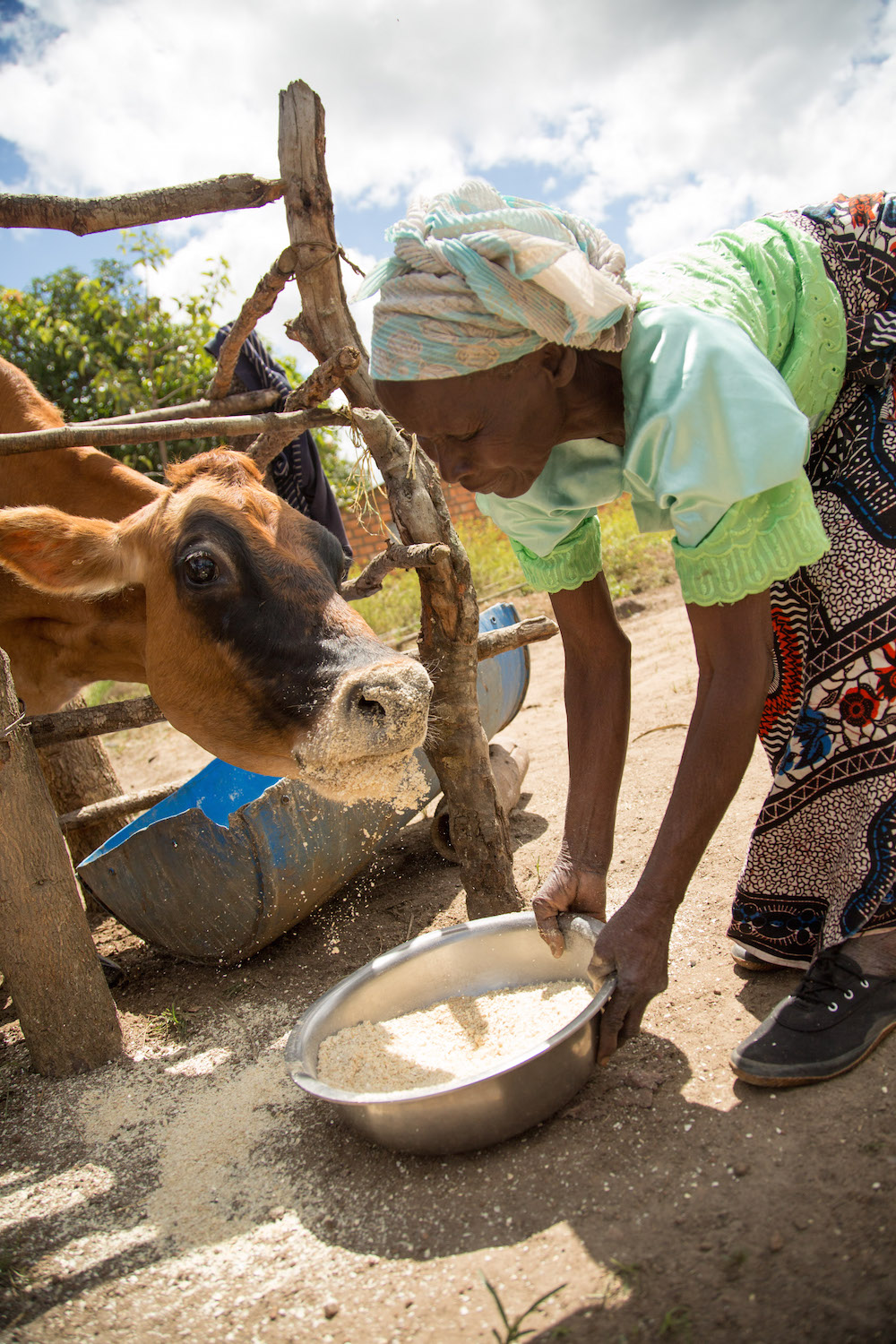
In Zambia’s aptly named Copperbelt province, copper is the lifeblood of the economy and has been for generations. When he was 28 years old, Jeremy Chela started working in one of the mines, drilling holes and placing explosives that would blast the metal out of the ground. It was dangerous work, but he managed to survive 27 years on the job.
At age 55, Chela was forced to find a new way to make money. “(The mining company) told me I was old,” he said. “They retired me.”
Kenneth Kaunda, Zambia’s first president, always told his people to go back to the land, and that idea stuck with Chela over the decades. So that’s what Chela did, asking the local chief for a plot of land, which he was granted. And Chela and his wife, Twice Chela, survived on the staple crops they grew, for a time.
But after four years, circumstances changed once again. “I had an accident in the field,” Jeremy Chela said. “I was cutting a tree, then part of the branch came and stuck me in the eye, my left eye.” He lost sight in his left eye; a year later, residual nerve damage took the sight from his right eye as well.
Twice Chela took over all of the farming duties. “I had no choice,” she said. “I had to do it alone, because it was the only way of survival.”
Although their adult children were able to send them some money, the couple struggled, as the farm work was too much for one person. Food, clothes and other necessities were scarce.
After years of struggling, a man involved in a Heifer Zambia project nearby came to tell the Chelas’ community about the program. “I said, ‘My God, this is good information. We are going to join,’” Jeremy Chela said.
When their heifer arrived, the Chelas named her Fineness and stayed up all night to make sure the animal was clean and cared for. Later that week, they started milking the cow.
“We started drinking milk, and we started looking much better than before,” Jeremy Chela said. “(When we were ready to milk the cow), I called my children, who were helping me. We sat here as a family to drink milk. It was a milk party.”
Now, the Chelas are healthier than before. “I’ve put on weight,” Jeremy Chela said. “I never used to look like this.”
Since she arrived, Fineness has had four calves—one of which has been passed on to another family—and Jeremy Chela remembers the birthday of each. Fineness and her calves have allowed the Chelas to buy more and a larger variety of food while also paying for their grandchildren’s school fees and uniforms. They even have enough money to pay their neighbor to help them take care of the animals.
“Ever since Fineness came here, I’ve never slept hungry,” Jeremy Chela said.